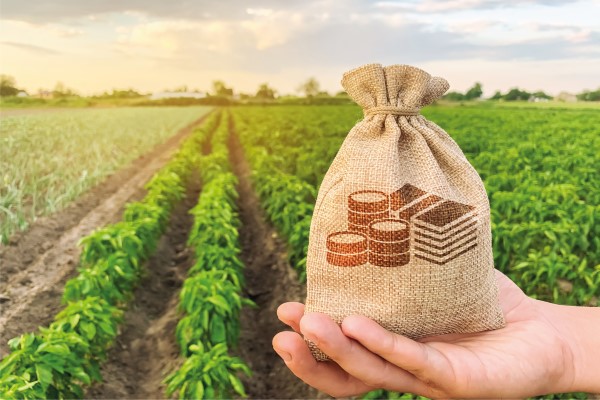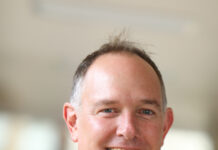Agriculture is a vital sector of the economy in Africa, providing food and employment opportunities for millions of people. However, despite the continent’s potential in agriculture, the sector has not been able to meet the growing demand for food. One of the major challenges facing African agriculture is the lack of adequate storage and milling facilities for grains. This has resulted in post-harvest losses, reduced profitability, and limited access to markets. In this article, we will explore the possibility of financing grain storage and milling projects in Africa through German banks with the support of Euler Hermes ECA.
Background
Grain storage and milling facilities are essential for preserving the quality of grain products and ensuring that they reach the market in a timely and efficient manner. However, setting up and maintaining these facilities can be a significant financial burden for farmers and other stakeholders in the agriculture value chain. This is particularly true in Africa, where access to credit and other forms of financing is limited.
German banks have a long history of providing financing for development projects in Africa. They are known for their expertise in project finance, and their willingness to take on risks that other banks may consider too high. Furthermore, German banks are committed to promoting sustainable development, which aligns with the United Nations Sustainable Development Goals (SDGs).
Euler Hermes ECA is a credit insurance company that offers risk mitigation solutions for international trade and investment. The company is part of the Allianz Group, one of the largest financial services providers in the world. Euler Hermes ECA offers a range of products and services, including credit insurance, guarantees, and sureties. The company works closely with German banks to support financing for development projects in Africa and other regions.
Financing Options
German banks offer several financing options for grain storage and milling projects in Africa. These include loans, equity investments, and guarantees. The financing options available will depend on the specific needs of the project and the risk profile of the borrower.
- Loans: German banks offer a range of loan products for development projects in Africa. These loans may be denominated in Euros or local currency, and may be structured as long-term or short-term loans. Long-term loans are typically used for capital investments, while short-term loans may be used for working capital or trade financing.
- Equity investments: German banks may also provide equity investments for development projects in Africa. These investments may take the form of direct equity or mezzanine finance. Direct equity involves the purchase of a stake in the project, while mezzanine finance is a hybrid of debt and equity financing.
- Guarantees: German banks may also offer guarantees to support financing for development projects in Africa. These guarantees may take the form of letters of credit, performance guarantees, or payment guarantees. Guarantees are typically used to mitigate risks associated with trade or investment transactions.
Risk Mitigation
One of the challenges facing financing for development projects in Africa is the high level of risk associated with these projects. However, Euler Hermes ECA offers risk mitigation solutions that can help reduce the risk for German banks and other investors.
- Credit insurance: Euler Hermes ECA offers credit insurance to protect German banks and other investors against the risk of non-payment by borrowers. This insurance covers commercial and political risks, including default, insolvency, and political unrest.
- Guarantees: Euler Hermes ECA also offers guarantees to support financing for development projects in Africa. These guarantees may take the form of sureties, performance guarantees, or payment guarantees. They are designed to provide a level of assurance to German banks and other investors that their investment will be protected.
- Political risk insurance: Euler Hermes ECA offers political risk insurance to protect German banks and other investors against the risk of expropriation, nationalization, and other political risks. This insurance covers losses resulting from political events that are beyond the control of the borrower, such as expropriation, war, and political violence.
Long-term credits may have repayment terms of up to 12 years – in exceptional cases up to 18 years. As a rule, a down-payment amounting to 15 % of the contract value and payment of the remaining 85 % in at least semi-annual instalments are required for transactions with credit terms of more than one year.
KYC process
As part of the Know Your Customer (KYC) process, Euler Hermes and the German banks will typically require a range of information and documentation from the customer. This information is necessary to assess the creditworthiness of the borrower and to determine the risk profile of the project.
The information and documentation that Euler Hermes and the German banks may require include:
- Business plan: A comprehensive business plan that outlines the objectives of the project, the expected return on investment, and the strategy for achieving these goals.
- Financial statements: Financial statements, including income statements, balance sheets, cash flow statements, and bank relations and liabilities are necessary to assess the financial health of the borrower and the project.
- Project feasibility study: A feasibility study that assesses the viability of the project, including the market demand, potential revenue streams, and operational costs.
- Market analysis: An analysis of the market, including the supply and demand for grain products in the region, the competitive landscape, and the potential risks and opportunities.
- Legal documentation: Legal documentation, including the project agreement, partnership agreement, shareholder and ownership structure, and any other legal contracts relevant to the project.
- Environmental and social impact assessment: An assessment of the potential environmental and social impact of the project, including any potential negative impacts and mitigation measures to address these risks.
- Compliance documentation: Documentation demonstrating compliance with relevant laws and regulations, including environmental regulations, labor laws, and anti-corruption laws.
In addition to these documents, Euler Hermes and the German banks may also require additional information and documentation, such as the borrower’s credit history, personal financial statements, and details of any other loans or financing arrangements.
Financing grain storage and milling projects in Africa through German banks with the support of Euler Hermes ECA is an attractive option for investors interested in the agriculture sector. German banks offer a range of financing options, including loans, equity investments, and guarantees, to meet the specific needs of the project. Euler Hermes ECA provides risk mitigation solutions that can help reduce the risk for investors, making these projects more attractive and viable. By providing adequate financing and risk mitigation solutions, CESCO EPC can support investors to promote sustainable development in Africa and support the growth of the agriculture sector.








